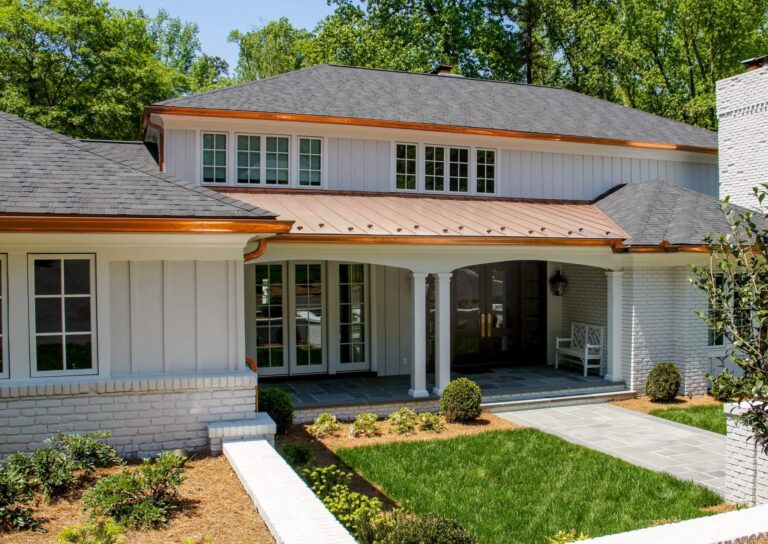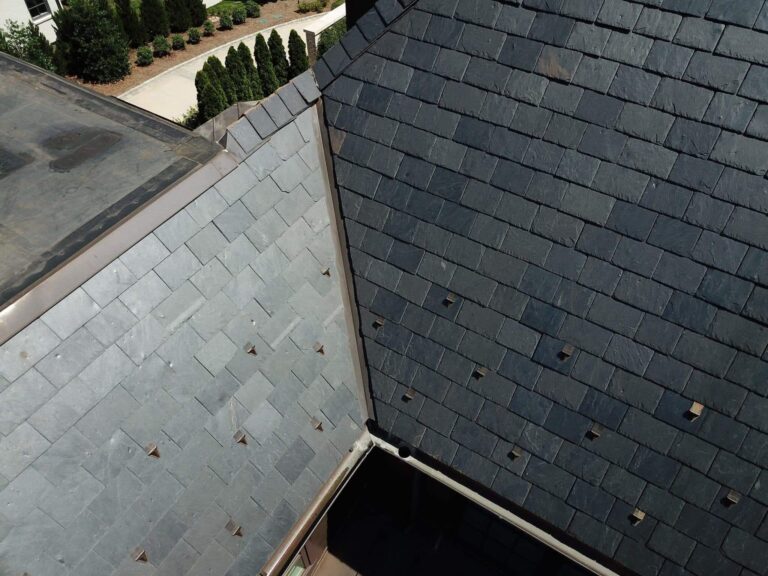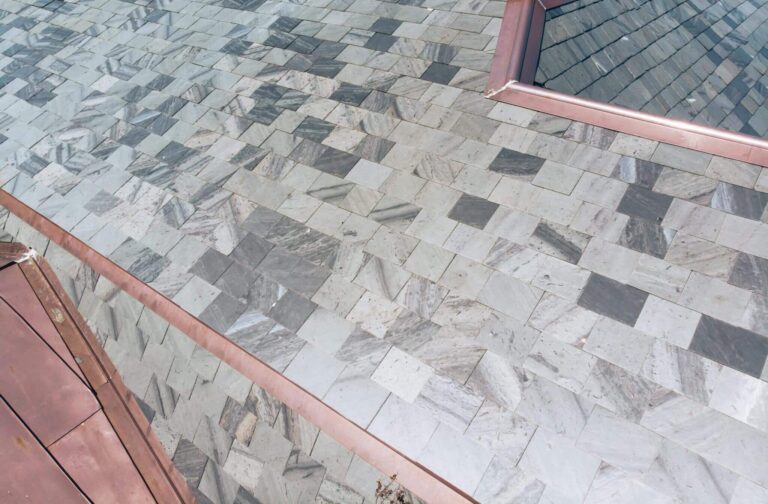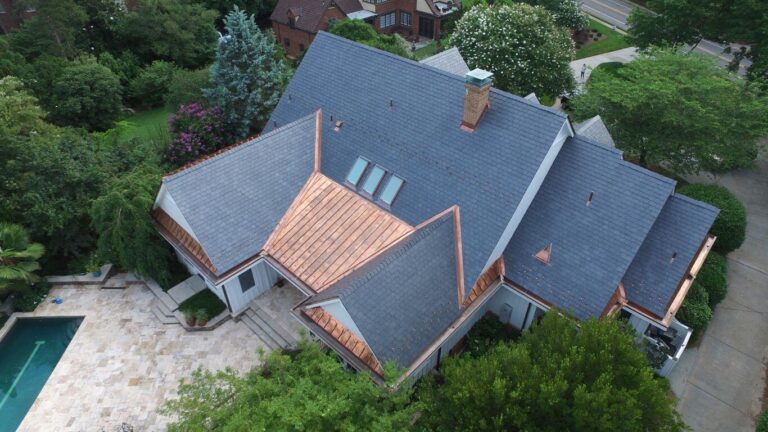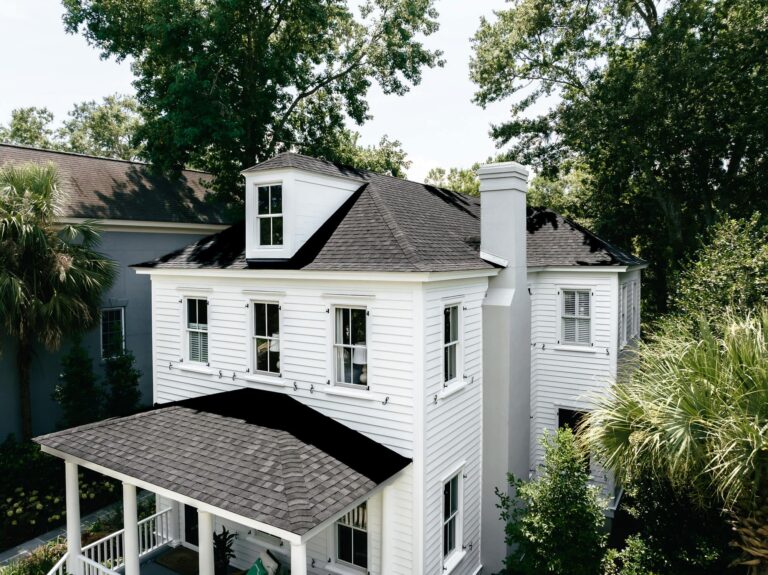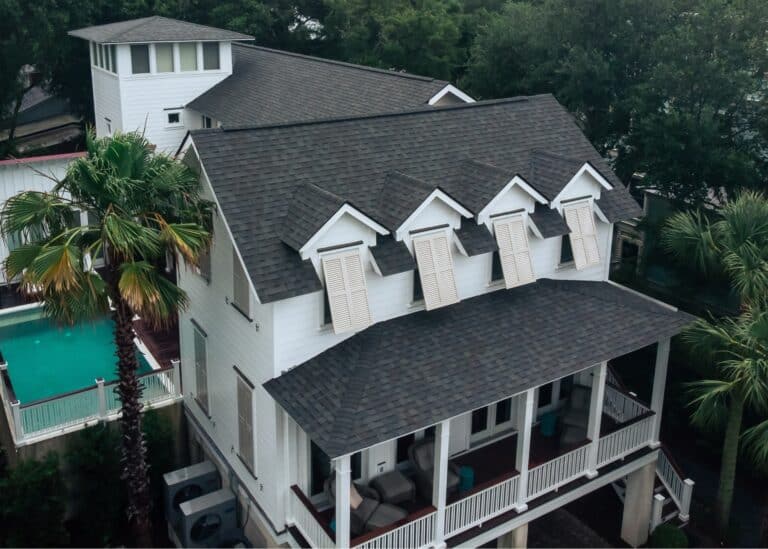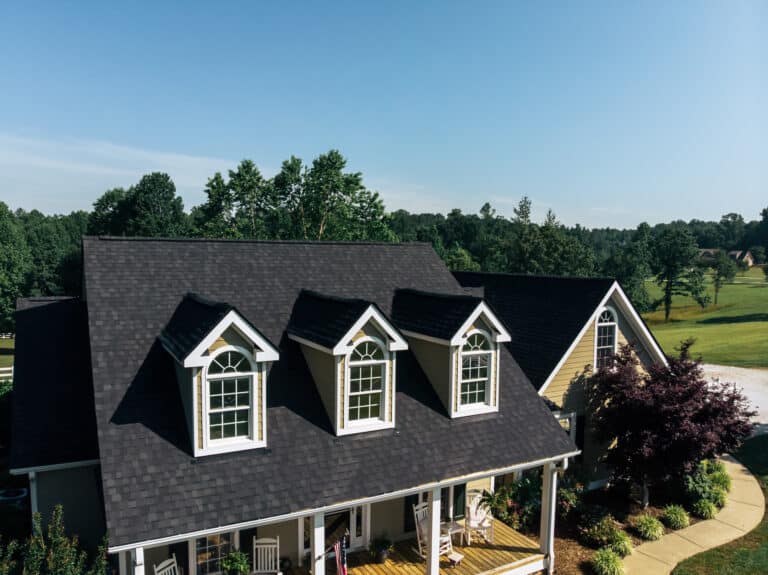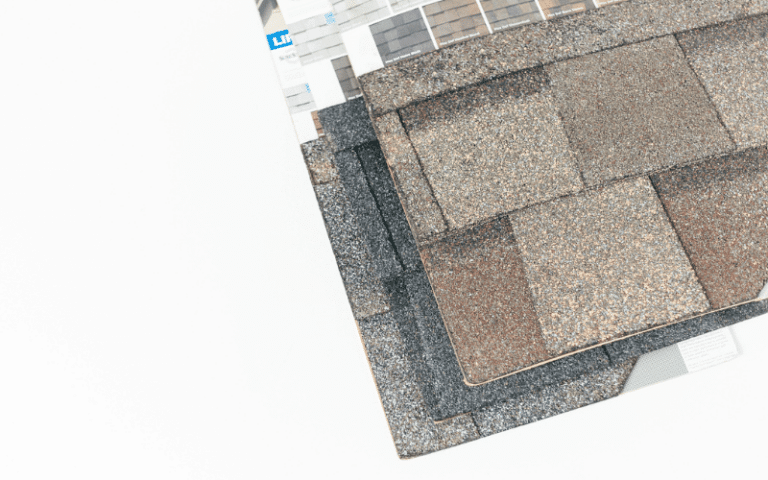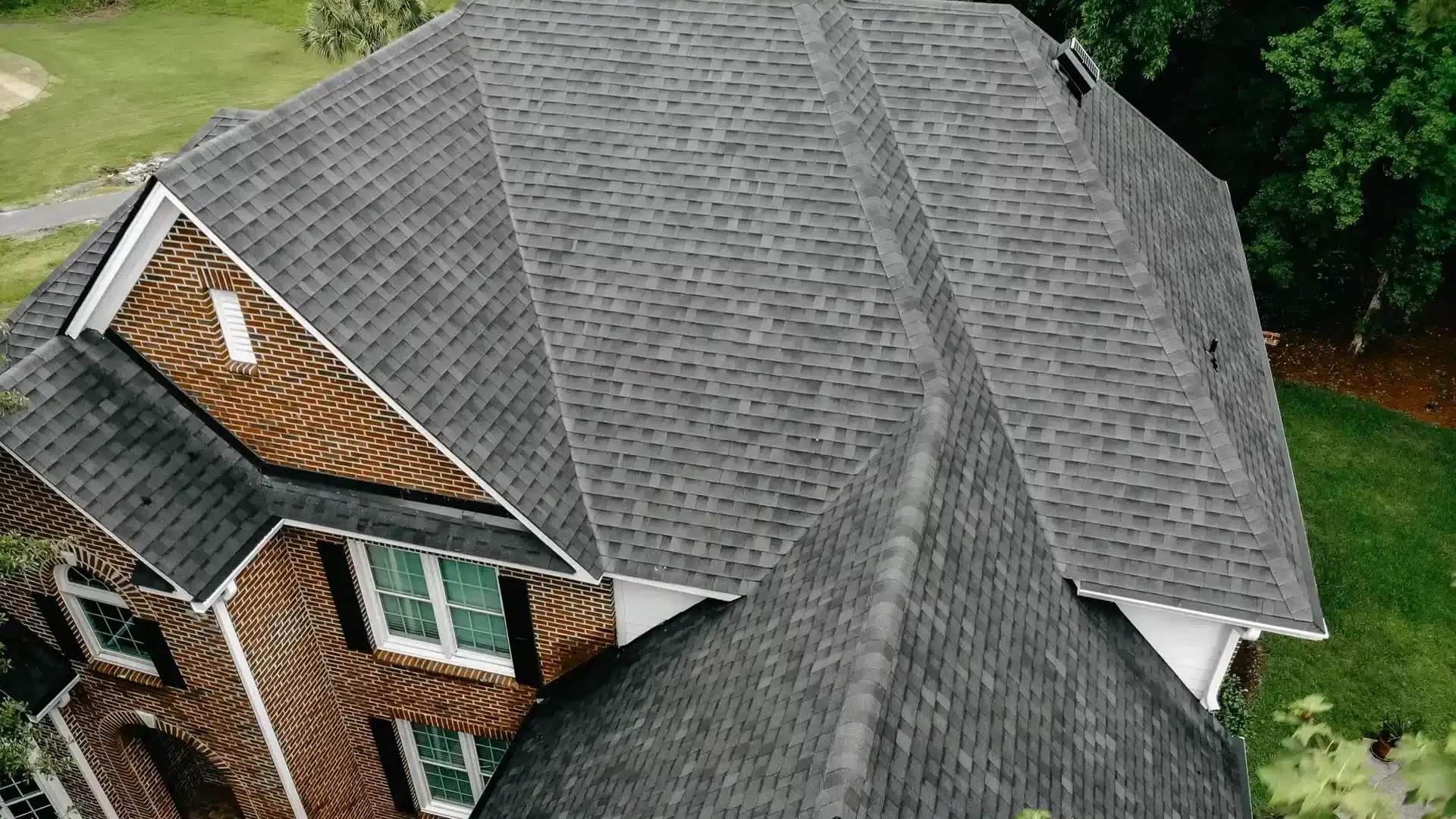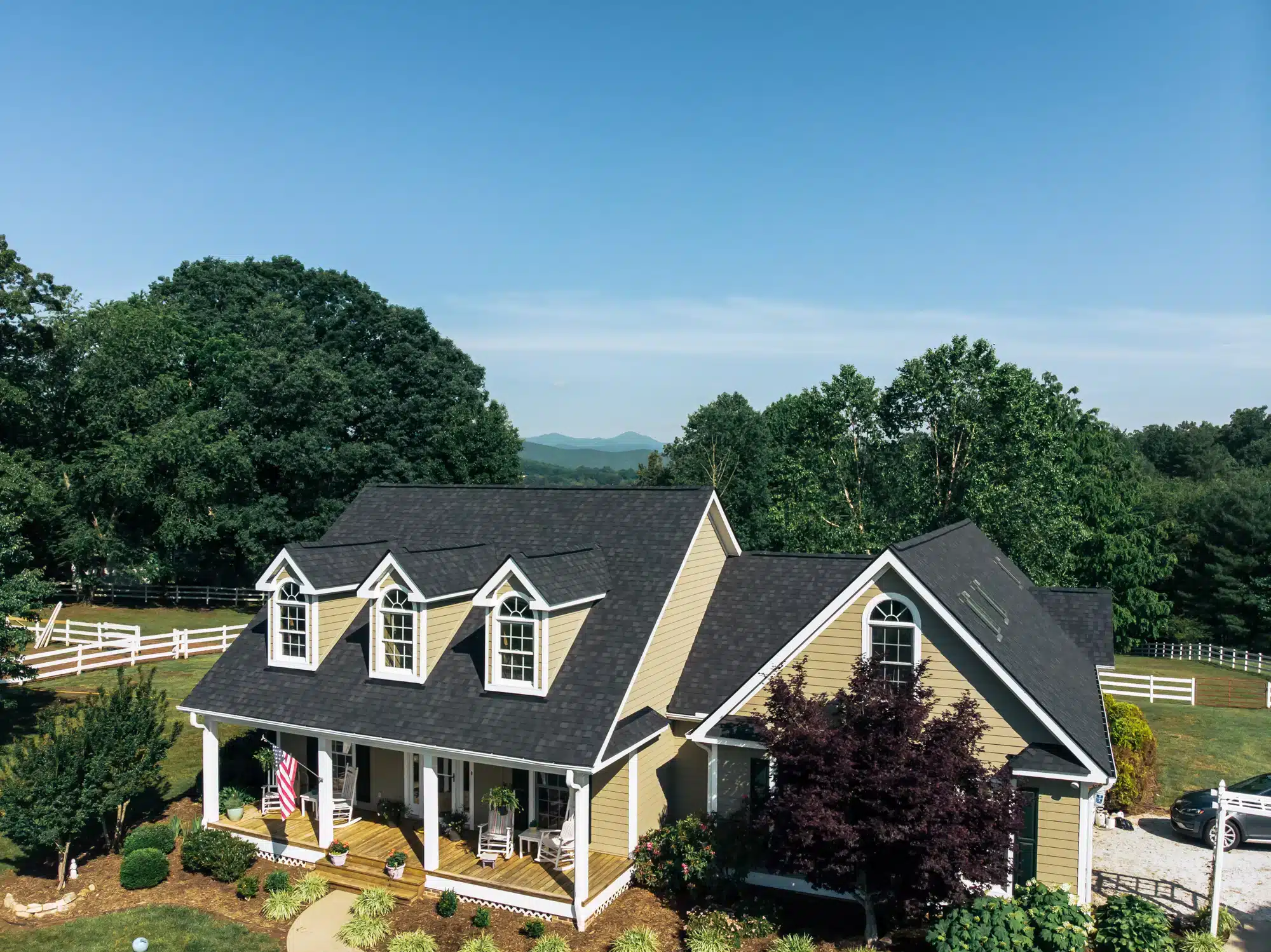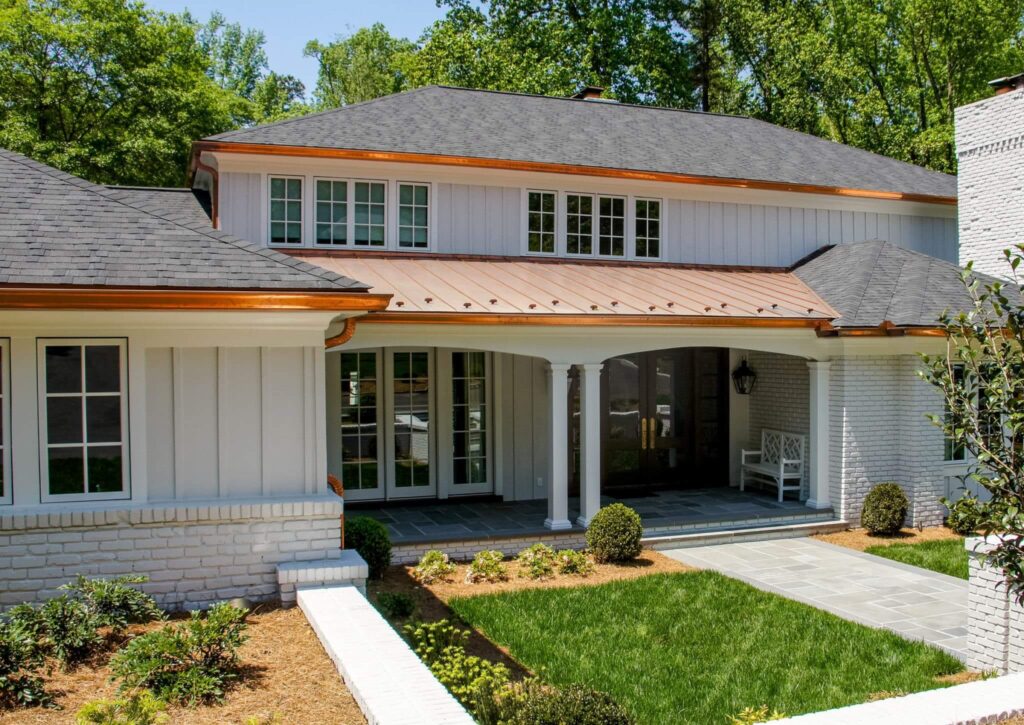Best Materials for Coastal Roofing: A Complete Guide to Your Beach House’s Roof
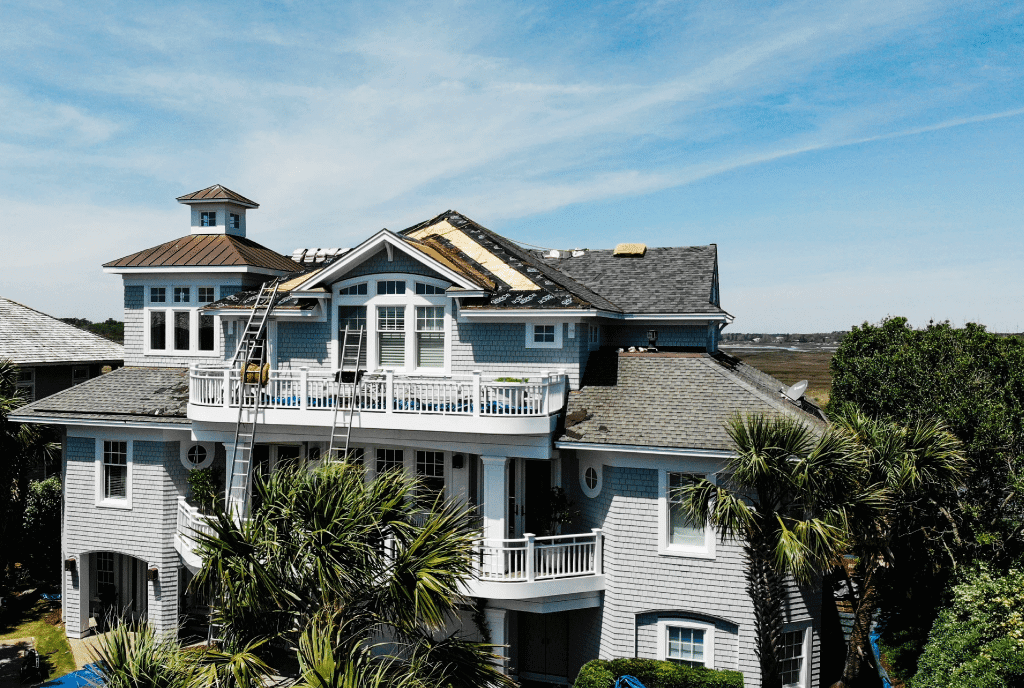
Whether your beach home is your permanent address or simply your weekend getaway, ensuring that your roof stays in good shape is essential for the longevity of your property. And that begins with the right roof material. In this article, we’ll cover the factors that make coastal roofing unique and the types of roofing materials that perform well on beach homes, equipping you to take the next step toward the home you deserve.
Quick Answer
The best coastal roofing materials are copper, slate, and asphalt shingles. Copper and slate offer superior resistance to the major coastal threats of wind, salt, and humidity, lasting for decades with proper installation. While asphalt shingles are more affordable, they may require more maintenance in harsh coastal conditions. For maximum protection and longevity, choose a heavy, corrosion-resistant roof designed for high-wind zones and humid ocean air.
Explore Baker’s Roofing Options for Your Beach Home in the Carolinas
Fast and free estimates.
Special Considerations for Coastal Roofing
Different geographic areas have special needs. Homes built near areas prone to forest fires, for example, need to be sure to have fireproof roofs. Similarly, homes built in very warm areas need roofs that reflect the heat, helping the home stay cooler.
The same consideration needs to be taken for homes located near the coast, where wind, salt, and humidity can damage certain roofing materials:
- Wind in North and South Carolina’s coastal areas average a tolerable 17 mph, but when hurricanes or tropical storms veer close, the gusts can (and have) peaked at 98 mph. Heavier roofing materials, tested and approved for high winds, should be used to make sure the shakes or shingles won’t blow off.
- Salt from the ocean can corrode certain materials, like some metals. Look for materials that won’t corrode or that have the additional protection of an alloy coating.
- Humidity is also a factor, as moisture can damage roofing materials if not properly maintained. With an annual average of nearly 80% humidity, East Coast beach roofs should be built with materials that can withstand moisture.
Under these three conditions, your roof will need to be replaced more frequently, especially if not optimized for local conditions. That’s why choosing the right coastal roofing material is so important.
Your Dream Home Exterior Is Possible
Our expert craftsmen are here to help bring your vision to life. Ready to get started?
3 Best Coastal Roofing Materials
Given the need for roofs that stand strong against wind, salt, and humidity, coastal homes should be built with these roofing materials:
1. Copper
Unlike iron that rusts and then breaks down, copper reacts to exposure to air and water by forming a green outer layer that is called a patina. The patina protects against corrosion, making copper a good alternative for roofing in an area that has salt and moisture.
Copper is also heavy, which helps it withstand wind. In part because of that, it is one of the more expensive types of roofing material and is seen more often on older homes than on new construction.
Explore Copper Roofing Services
Baker Home Exteriors offers a wide range of metal roofing options, including copper. Weather-resistant and visually stunning, a Baker metal roof is built to last. Learn more using the button below.
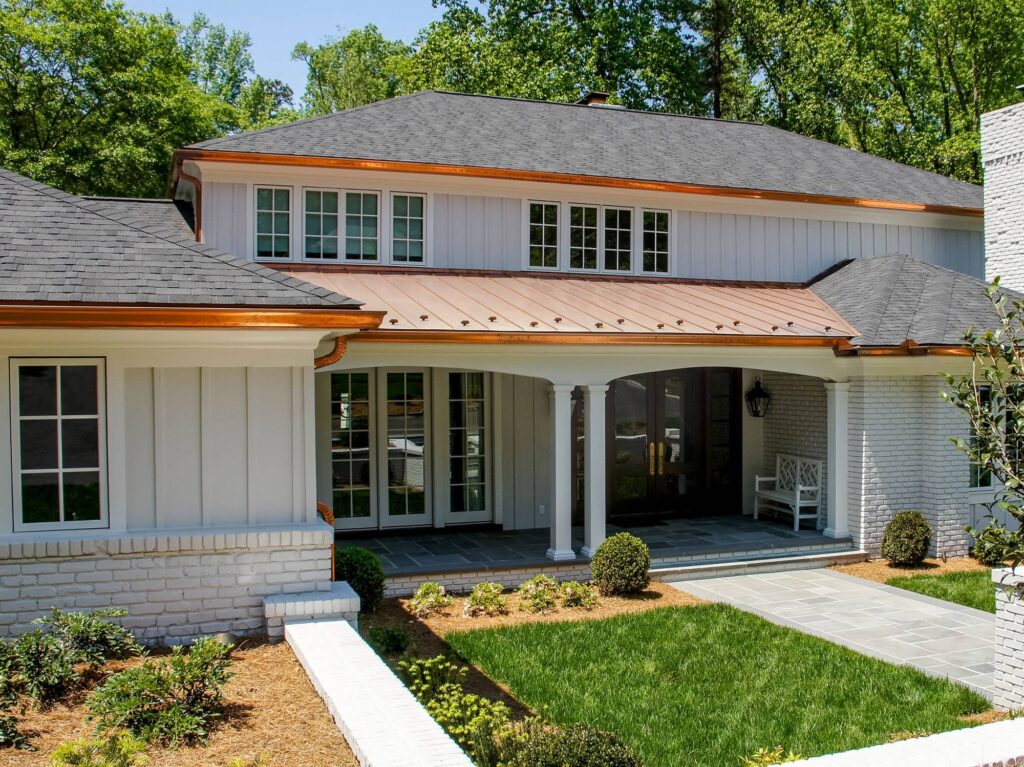
Learn More About Copper Roofing
2. Slate
These heavy tiles can last 100 years. If you’re looking for a lifetime roof, this is one to consider. Slate must be installed properly and it is expensive, but it can withstand the elements better than almost any other material.
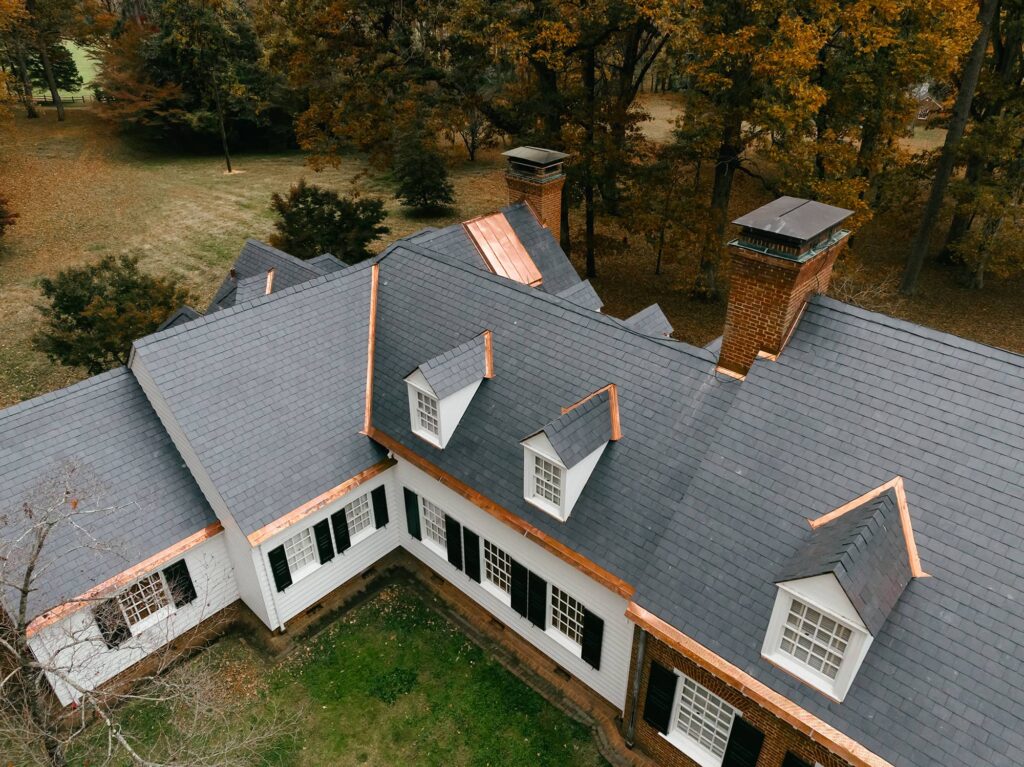
Explore Slate Roofing Services
Durable, and naturally beautiful, a Baker Home Exteriors slate roof offers unmatched longevity and elegance. Crafted from genuine stone, each tile brings distinctive color variations and enduring strength to your home, providing unique character you can’t find in any other material. Learn more using the button below
Learn More About Slate Roofing
3. Asphalt Shingles
Also known as composition shingles, these are one of the most popular types of roofs. Although they are not as durable as copper or slate, they are easy to install and are less expensive than the other materials. However, asphalt shingles may crack and are more likely to sustain wind damage.
Explore Asphalt Shingle Services
Baker Home Exteriors can repair, replace, or install asphalt shingles in as little as one day. We offer extensive customization options and in-depth expertise to ensure your new roof is a perfect match for your home. Learn more with the button below.
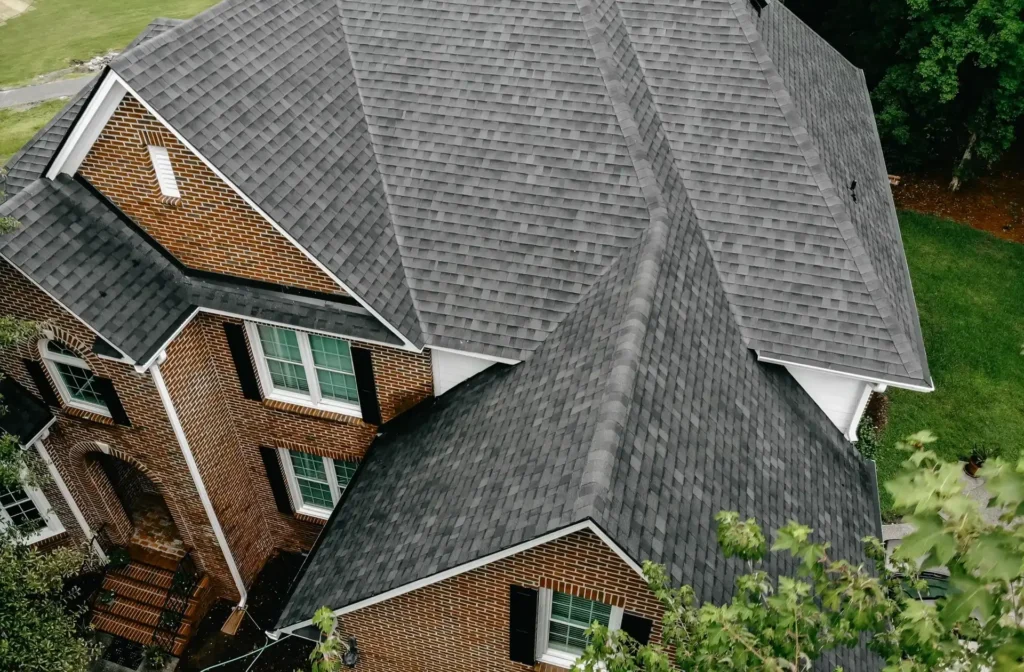
Learn More About Asphalt Shingles
Frequently Asked Questions (FAQs)
Copper and slate are among the best roofing materials for beach houses because they resist corrosion, wind, and humidity. Copper develops a protective patina, while slate is dense and durable, often lasting 100 years or more.
Salt air can corrode unprotected metals, causing premature wear on roofing materials. Choosing corrosion-resistant options like copper, aluminum with alloy coating, or slate helps prevent rust and deterioration.
Heavier roofing materials such as copper, slate, and architectural asphalt shingles perform best in high-wind areas. They’re less likely to lift or crack during tropical storms or hurricanes.
High humidity can lead to mold and rot over time. Roofs for coastal homes should be made from materials that resist moisture absorption and include proper ventilation and underlayment systems.
Asphalt shingles are affordable and easy to install, but they require more maintenance in salty, humid climates. Upgrading to architectural shingles or impact-resistant varieties can improve longevity near the coast.
The lifespan varies by material: asphalt shingles last 20–30 years, while copper and slate can last up to (or, especially in slate’s case, even exceed) 100 years. Regular inspections and maintenance help maximize these lifespans in harsh coastal environments.
Yes. Regularly rinsing salt buildup, inspecting flashing, and checking for corrosion or lifted shingles will prevent damage. We recommend annual professional inspections for homes near the ocean.
Final Thoughts
With a variety of choices and considerations, which coastal roofing material is right for you? It is an individual decision, based on your budget and preferences, as well as your home’s needs and architecture. If in doubt, it’s best to reach out to a licensed local roofing contractor (like Baker Home Exteriors!) who knows your area’s climate and can make recommendations based on your home’s unique attributes.
Looking for Beach Roofing Services Near You? Baker Has You Covered
If you’re looking for roof repair, replacement, or installation services for your beach home in North or South Carolina, give Baker Home Exteriors a call. For over 110 years, Baker has offered premium roofing solutions that only a century of experience can guarantee.
Let our family take care of yours. If you’re ready to start your journey toward your dream home, schedule a free estimate for your roofing project below. On the other hand, if you still need time to think, feel free to check out our Google reviews. We look forward to talking to you!

